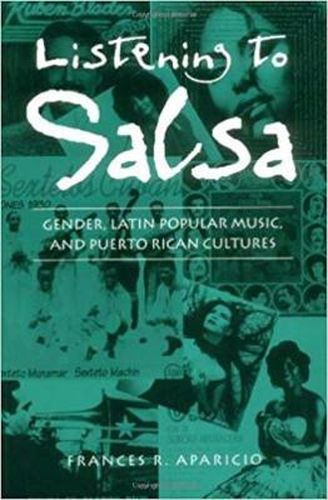Readings Newsletter
Become a Readings Member to make your shopping experience even easier.
Sign in or sign up for free!
You’re not far away from qualifying for FREE standard shipping within Australia
You’ve qualified for FREE standard shipping within Australia
The cart is loading…






For Anglos, the pulsing beats of salsa, merengue, and bolero are a compelling expression of Latino/a culture, but few outsiders comprehend the music’s implications in larger social terms. Frances R. Aparicio places this music in context by combining the approaches of musicology and sociology with literary, cultural, Latino, and women’s studies. She offers a detailed genealogy of Afro-Caribbean music in Puerto Rico, comparing it to selected Puerto Rican literary texts, then looks both at how Latinos/as in the US have used salsa to reaffirm their cultural identities and how Anglos have eroticized and depoliticized it in their adaptations.
Aparicio’s detailed examination of lyrics shows how these songs articulate issues of gender, desire, and conflict, and her interviews with Latinas/os reveal how they listen to salsa and the meanings they find in it. What results is a comprehensive view that deploys both musical and literary texts as equally significant cultural voices in exploring larger questions about the power of discourse, gender relations, intercultural desire, race, ethnicity, and class.
$9.00 standard shipping within Australia
FREE standard shipping within Australia for orders over $100.00
Express & International shipping calculated at checkout
For Anglos, the pulsing beats of salsa, merengue, and bolero are a compelling expression of Latino/a culture, but few outsiders comprehend the music’s implications in larger social terms. Frances R. Aparicio places this music in context by combining the approaches of musicology and sociology with literary, cultural, Latino, and women’s studies. She offers a detailed genealogy of Afro-Caribbean music in Puerto Rico, comparing it to selected Puerto Rican literary texts, then looks both at how Latinos/as in the US have used salsa to reaffirm their cultural identities and how Anglos have eroticized and depoliticized it in their adaptations.
Aparicio’s detailed examination of lyrics shows how these songs articulate issues of gender, desire, and conflict, and her interviews with Latinas/os reveal how they listen to salsa and the meanings they find in it. What results is a comprehensive view that deploys both musical and literary texts as equally significant cultural voices in exploring larger questions about the power of discourse, gender relations, intercultural desire, race, ethnicity, and class.